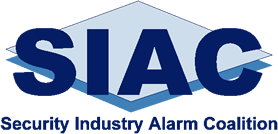We’d love to able to say we’re starting 2012 on an upswing, that every community in America is safe, and all alarm systems are being managed effectively. But as reality would have it, that’s not the case.
As seems to happen during the holiday season more than it should, SIAC was brought into two new battles against Verified Response (when police will no longer be first responders to alarm signals): In San Jose, CA and Las Cruces, NM. Sadly, it seems that during the holiday season, when you hope for some relaxation and quality family time, a sudden policy or ordinance is dropped into the hopper. This syndrome also seems to occur when many in our industry are at annual conferences, like ESX of the CSAA annual meeting. It makes you think.
Regardless of conspiracy theories, SIAC digs in, pitches its resources into the fray, and helps the local or state association make inroads on mutually agreeable solutions with local authorities. In these two cases, our results have been mixed.
San Jose appears committed towards its VR path, with implementation already occurring. We worked extensively with the police department to share information on alternative successful solutions, mostly to no avail. We’re hopeful the industry can have a continued dialogue, and perhaps an extension for companies to prepare for VR.
In Las Cruces, we are engaged with the New Mexico Electronic Security Association (NMESA), working together so we can educate and interact with local officials on the best way to proceed. We’ll continue to be involved in both cities, and keep you posted. Remember to monitor the “State Activity Report” on www.siacinc.org.
As happens elsewhere, what these two cases demonstrate is our need to get help from you – security industry members who follow these issues closely. For your company to be successful over the long-term, our industry (you, us, state and local associations) needs to get information on potential alarm ordinances or policies early in the process. The more we have to react, the less we have a voice. So keep your ear to the ground. Keep us posted. Let your local and state association know when you hear something new. Then we can all get active earlier and more effectively. That helps everyone, including local officials, its citizens and the community, because it allows the best solutions to come forward.
